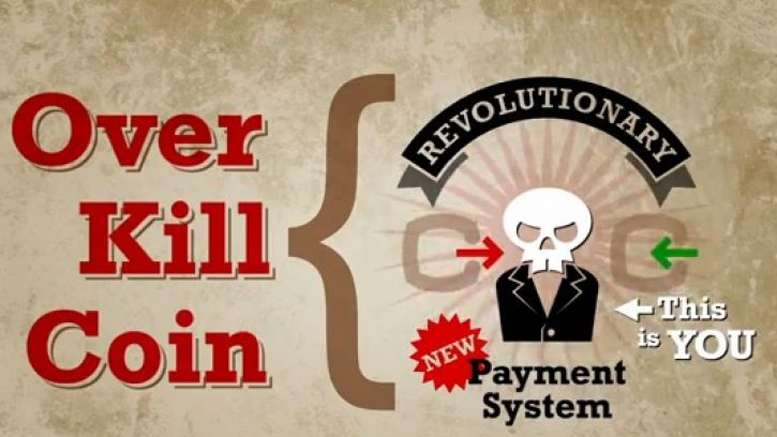
Overkillcoin to Rule the Cryptographic World
April 2014 brings interesting news to the cryptographic environment. If you doubt Bitcoin and ask how long it will last on the market, switch to Overkillcoin – the most promising virtual currency. Promising and loud - Overkillcoin is the new revolutionary payment system. It seeks to baffle everyone wondering why the world needs another cryptographic asset that is actually a poorly-made rip-off of the fabulous Bitcoin. Rather ambitious Overkillcoin converts the interest of society in other coins into an instrument to pad the pockets of the developers and early dumpers. Initially....
Related News
Heavycoin is an interesting coin having been released a couple months ago. Here, an interview regarding the Heavy1 algorithm with the developer: Scrypt/adaptive-n is a single cryptographic hash function. Using a single cryptographic hash function as the basis for a crypto-currency is fine until that cryptographic hash function becomes weak, for example, due to advances in cryptography. You might think that would never happen, but it does. Cryptography does advance and the state-of-the-art changes. Cryptographic hash functions have limited lifetimes. Over time advances are made in....
The rule would have prohibited US banks from denying services based on ideological factors.
As the prosecution of Julian Assange continues, can the cryptographic technology that helped WikiLeaks restore history now be used to defend the freedom of its founder? The post Political Prosecution Of Julian Assange Calls For Nonviolent Cryptographic Defense appeared first on Bitcoin Magazine.
The U.S. Securities and Exchange Commission (SEC) today issued an order disapproving the proposed rule change to list and trade Coin ETF on the Bats BZX Exchange. This is the first Bitcoin ETF which the SEC has ruled on. Two other Bitcoin ETFs are also being considered by the Commission. The Decision. The SEC has just published an “Order Disapproving a....
A proposed OCC rule would stop banks from using political criteria in lending. But we don't need it, says our columnist.




